Israel-Hamas War: What happened on day 90?
Gallant: 'Hamas will not rule Gaza, and Israel will not rule Gaza' • Three missing Israelis were taken hostage in Gaza, bringing total to 136
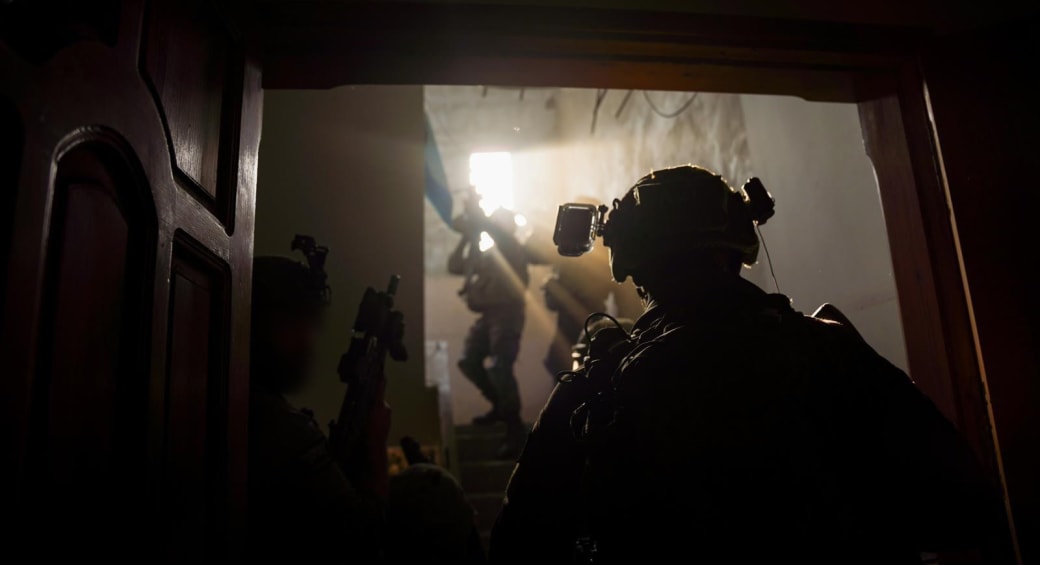

Israel's defense establishment plans for running post-war Gaza revealed
While The Jerusalem Post previously reported that top defense officials want local Gazan Palestinians to run Gaza once the IDF starts to withdraw, this was only part of the picture.
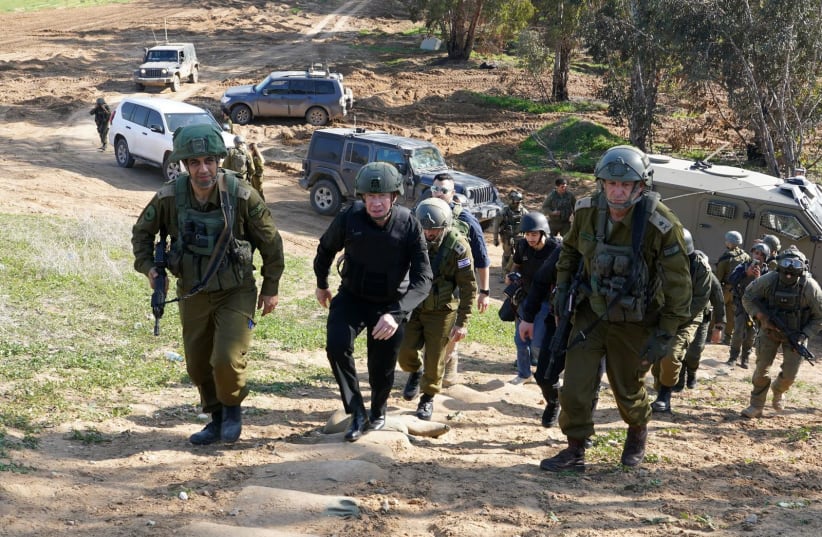
Defense Minister Yoav Gallant on Thursday presented his plan to the War Cabinet and the State Security Cabinet for Israel's security status once the war in Gaza is over.
The plan included the integration of existing Palestinian civilian leadership in Gaza into a more substantial local government. "Hamas will not rule Gaza," said Gallant in a press briefing before the meeting, "and Israel will not hold a civilian governorship over Gaza."
While The Jerusalem Post previously reported that top defense officials want local Gazan Palestinians to run Gaza once the IDF starts to withdraw, this was only part of the picture, with the remainder of the picture involving the US, the EU, and moderate Sunni allies, it can now be revealed.
Essentially, the concept of the defense establishment, which includes Defense Minister Yoav Gallant, is that eventually, more and more civil administration should be handled by local Gazans without Hamas loyalties themselves, but that this will not be possible all at once.
In some undefined transitional period, the IDF will retain broad security responsibility, including over the borders and with authority to conduct raids, but some hybrid mix of forces provided by the US, European allies, and Arab allies, such as the Saudis, Egypt, the UAE and others will assist with aspects of internal security and administration.
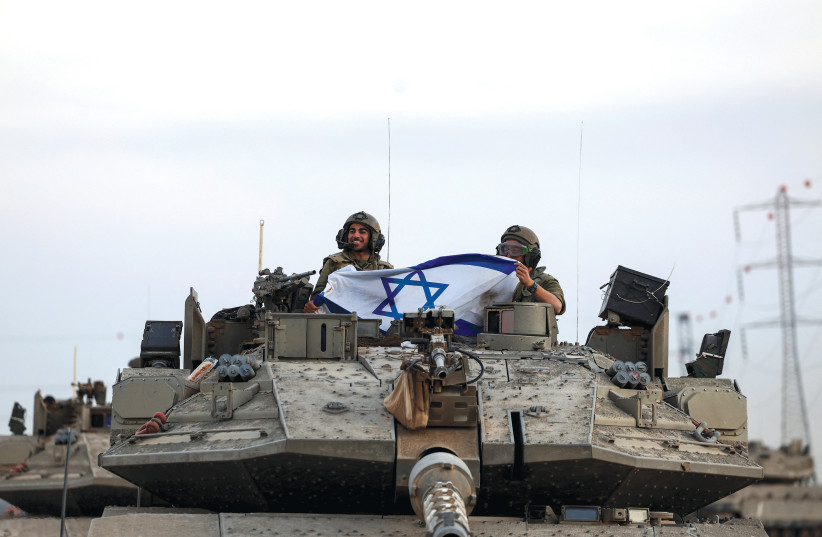
Only once the local Palestinian Gazans get their bearings, have more stable residences and lives, and appear ready to stand on their own if facing minor challenges from remnants of Hamas and other terror groups would the international conglomerate of countries yield more management to the local groups.
Palestinian Authority's role to be minimized
The defense establishment and Gallant also do not completely disqualify the Palestinian Authority from playing some role, though the defense minister would prefer to minimize its role or only give it a role if aspects of its policies toward Israel improve.
To date, Prime Minister Benjamin Netanyahu has avoided public debates on these issues and has mostly talked about what he is against: Such as no involvement for the PA.
However, the US, the EU, and the moderate Arab states may not agree to participate and provide funding, which could leave Israel stuck if Jerusalem does not show flexibility.
Further, Israel may be going to elections, in which case officials like Benny Gantz, who appear more open to the PA and to global suggested solutions in general, may end up deciding the issue.
It is also unclear how Israel will select Gazans who are truly disconnected from Hamas after the terror group's 16-year rule, but Gallant is confident that groups can be found or formed.
Go to the full article >>IDF, Shin Bet kill top Islamic Jihad operative in Gaza
Israeli forces in Gaza conduct training exercises to improve search-and-rescue operations.
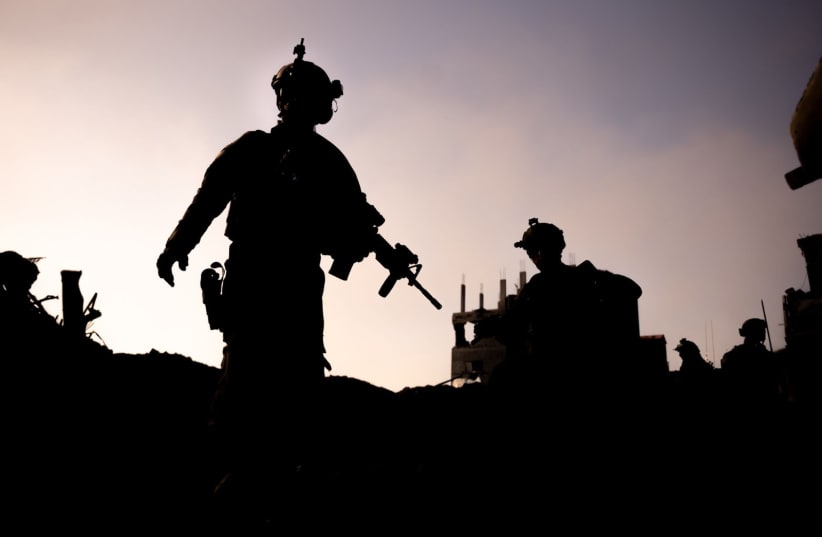
The IDF and the Shin Bet on Thursday announced the killing of Islamic Jihad northern Gaza operations chief Mamdouh Lolo.
Lulu helped plan all of the Islamic Jihad military and terror operations during and before the war for many years.
He was especially involved in masterminding attacks against Israeli territory and the home front in general.
Search and rescue operations in Gaza
Soldiers in the IDF's Search and Rescue Unit 669 recently conducted drills with IAF helicopters and Mobility Unit 5515 to improve their systems of rescuing wounded soldiers from the field of battle.
These units have already evacuated over 1000 wounded IDF soldiers since the outset of the war.
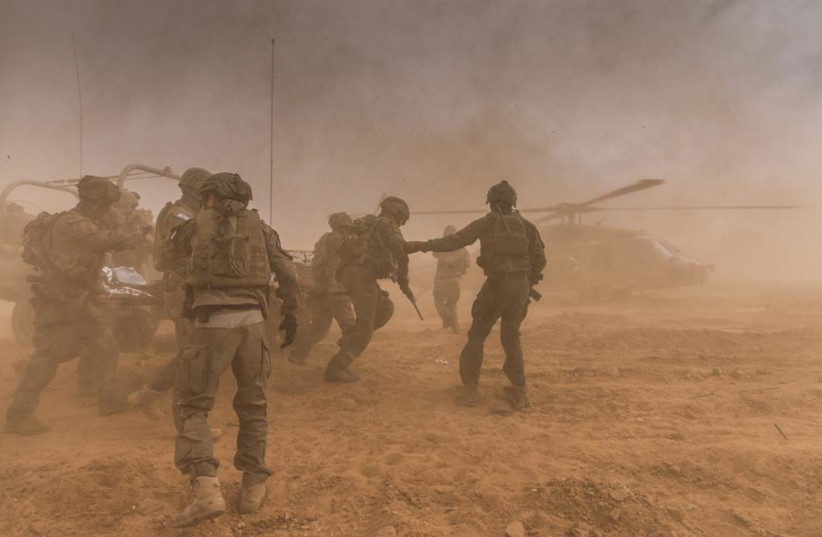
Soldiers in Unit 669 generally operate directly on the battlefield, taking the wounded out of the line of fire before the helicopter units transfer them to hospitals in Israel while on-board crews administer continued medical aid.
This is a developing story.
Go to the full article >>Window for Hezbollah solution is short, Israel's Gallant tells US envoy
Gallant on Thursday specified the conditions that Israel could live with for a diplomatic deal with Hezbollah.
Defense Minister Yoav Gallant told US Envoy Amos Hochstein on Thursday that the time for a diplomatic solution to moving Hezbollah's forces in southern Lebanon away from the border with Israel is running out.
"The window of time for a diplomatic solution is short. We are obligated to return the northern residents to their homes upon the changing of the security situation on the border," said Gallant.
The defense minister has said repeatedly in recent weeks that absent a deal with Hezbollah to withdraw its Radwan forces according to UN Resolution 1701, which mostly involves being north of the Litani River, Israel would need to escalate its attacks on the terror group, even if that led to a broader war.
Displaced Israelis and Hezbollah rockets
Over 80,000 Israelis have been evacuated from their northern homes since October when Hezbollah started attacking with rockets and anti-tank missiles.
In the last three to four weeks, the IDF has started to attack Hezbollah more aggressively and broadly and succeeded in getting more than half of the organization's forces to withdraw to the Litani River.
However, significant Hezbollah forces remain near the border and the terror group has continued to fire missiles and rockets at Israel.
Gallant on Thursday specified the conditions that Israel could live with for a diplomatic deal with Hezbollah.
Short of a significant change in the security situation, most northern residents have said they would refuse to return to the border, something which would threaten the ethos of Zionism regarding Jews being able to live anywhere within Israel's sovereign territory, including on hostile borders.
Go to the full article >>IDF hopes to be 50% done in Khan Yunis by next month
Operational control in southern Gaza is still months away.
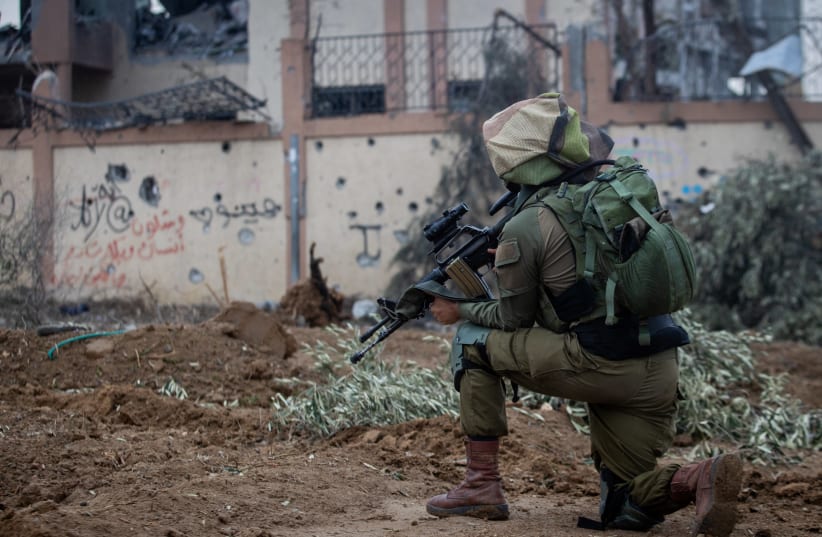
The IDF hopes to have taken apart two of Khan Yunis's four battalions, mainly in the northern part of the city, by sometime around the start of February.
Although the IDF is already starting to fight more in the southern and western sectors of Khan Yunis, taking apart those battalions is expected to take months longer.
It only took the IDF slightly more than two weeks to take operational control over large portions of northern Gaza, including most of Gaza City.
Then, it took about another month, with a break in the middle during the November 24-30 temporary ceasefire, for the IDF to have operational control over the remaining parts of northern Gaza, including Jabalia, Zeitoun, and Shejaia.
The IDF said that the current approach of advancing in Khan Yunis gradually but in a comprehensive way in each area where the IDF moves on to, including rooting out and destroying all of the massive tunnels and shafts, is time-consuming but the best available strategy.
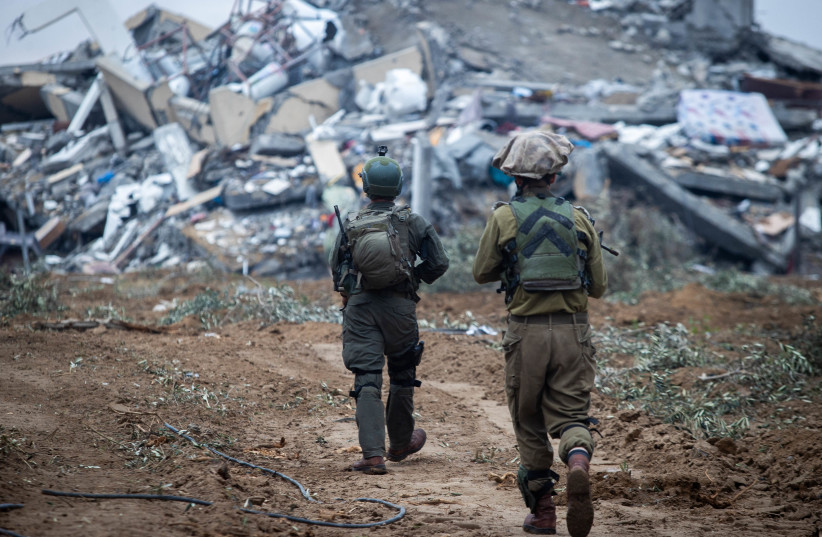
Also, the IDF said that its forces are not as familiar with some areas deeper within Khan Yunis, where it has not operated for even much longer than some areas in northern Gaza, where it spent more time in past Gaza conflicts. This creates a longer learning curve in terms of maneuvering and threat perception.
The IDF said it knows where the Khan Yunis center of gravity is located
To date, much of the fighting revolves around networks of tunnel shafts and the general area near those shafts.
Sometimes, the IDF may only have seconds to hit Hamas terrorists when they emerge from the shafts either to try to ambush Israeli forces or after the IDF has created a dangerous situation for them within the tunnels, which flushes them out.
The IDF has also killed two Khan Yunis battalion commanders in the northern and eastern areas during attacks underground and arrested five Nukbeh terrorists for interrogation for intelligence purposes in another underground attack.
IDF Brigade 4 Commander Col. Miki Sharbit said, "We struck the northeastern battalion of Khan Yunis. We are conducting operations both above and below ground, destroying the enemy - this is what we prepared for, and this is what we trained for."
"The brigade is responsible for the area of Tantzar and the Salah a-Din junction," which is a crucial travel point between northern and southern Gaza, said Sharbit, adding, "We are trying to destroy enemy forces who are trying to cross through from many different directions, and by maintaining control in the area, enabling Division 98 freedom of action to penetrate more deeply."
Sharbit noted that essentially every civilian area, from houses to schools to mosques, was being systematically exploited by Hamas to attack IDF forces.
Next, he said, "Lots of the intelligence which leads up forward [to the next attack point] is battle intelligence which we obtain during fighting in the field. During one operation of our division, we understood from a fight in a certain area that this area had many terror tunnel shafts."
Using this information and the IDF's full air and land long-range attack capabilities, he said that they were able to kill around 20 terrorists and their company commander. In addition, we captured several terrorists who provided valuable intelligence upon being interrogated."
Likewise, IDF Brigade 55 Commander Col. Oded Zimen said that his forces had killed many terrorists, significant amounts of terror infrastructure both above and below ground, and also captured terrorists who gave valuable forward-looking intelligence for fighting Hamas.
Go to the full article >>IDF thwarts Hamas anti-tank terror cells throughout Gaza
Battles also took place against Hezbollah in southern Lebanon the same day.
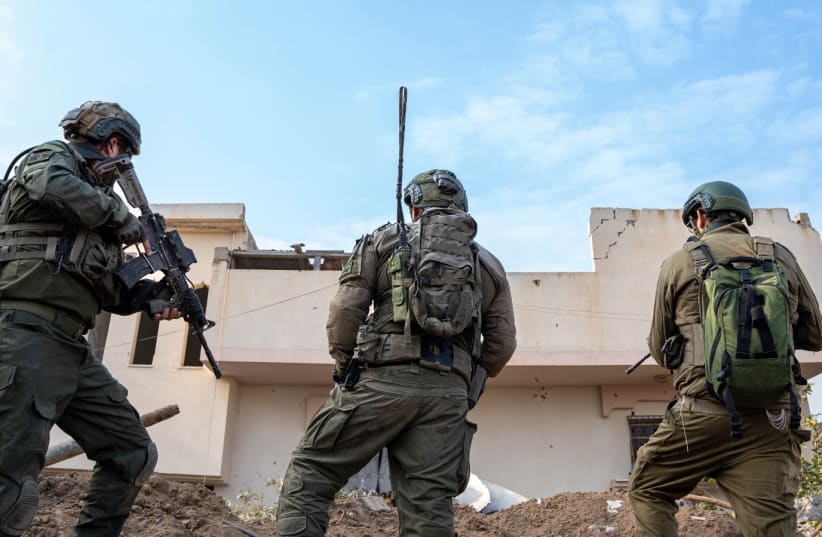
The IDF thwarted anti-tank Hamas terror cells throughout the Gaza Strip on Thursday.
Most of the battles were in the city of Khan Yunis, where three Hamas terrorists attacked IDF soldiers by attempting to plant an explosive device next to them. In response, the three were killed by an IAF aircraft under the direction of IDF personnel. An additional two terrorists were eliminated by Israeli forces after they were found in a nearby building.
Other activity in the Palestinian city that day saw an IAF aircraft striking a launch post used by Hamas to fire an anti-tank missile at IDF troops while also striking the terror cell operating inside the launch post.
A weapons storage facility also owned by Hamas was also struck by an Israeli fighter jet.
Another Hamas military structure was also struck by an IAF fighter jet. This structure was being used by an anti-tank terrorist operative from Hamas' Deir al Balah Battalion. Two other structures were additionally targeted, which saw Hamas terrorists flee the scene, and numerous weapons were uncovered by Israeli forces. A terrorist who arrived at the location to retrieve them was eliminated by an Israeli aircraft.
Battles in central Gaza
North of Khan Yunis, in the Bureij refugee camp, IDF troops located long-range rocket launchers.
Naval troops of the IDF are operating along the Gazan coastline in order to assist Israeli soldiers operating on the ground.
Fighting Hezbollah on the same day
An IDF squad attacked terror infrastructures and an anti-tank squad belonging to the Hezbollah terrorist organization.
Video documentation of the attack can be seen below:
Earlier, on Wednesday night, the IDF fired mortars to remove a threat in the village of Rav-a-Taltin in southern Lebanon. A number of launches from Lebanese territory to Israeli territory were also detected the following morning.
Go to the full article >>IDF intel chief leaves out destroying Hamas as goal of war
Haliva: We helped strike a major blow to Gaza and Iran
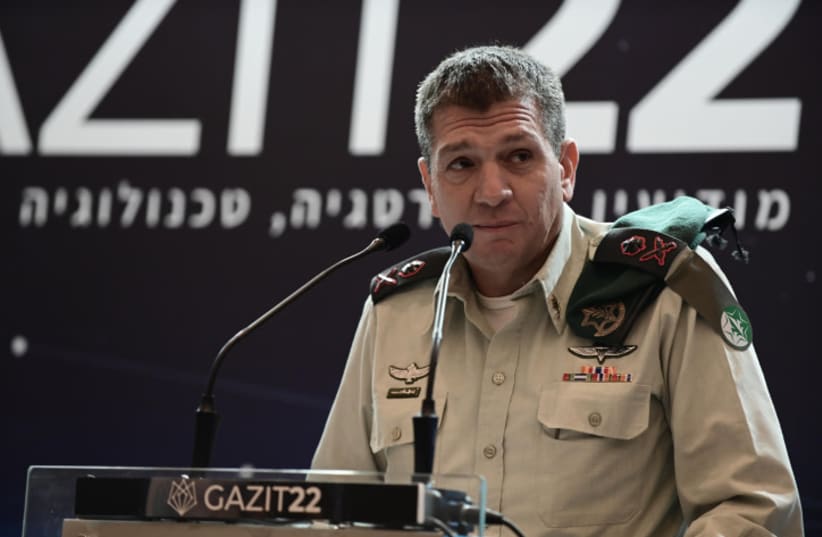
IDF intelligence chief Maj. Gen. Aharon Haliva on Thursday notably left out the idea of completely destroying Hamas as a goal of the war in a speech to the next class of intelligence officer graduates.
Instead of talking about a complete defeat of Hamas as most political officials do, he referenced striking a major blow to Gaza and Iran, restoring Israeli deterrence in the region, and returning the remaining approximately 130 Israeli hostages held by Hamas.
It was unclear if Haliva's speech was the signal of IDF officials becoming more public about a scenario where Hamas is not completely defeated - something which many officials have discussed in private for the last four to six weeks - a slip of the tongue with less significance, or a Freudian slip showing what many defense officials are thinking, without realizing the textual change could make waves.
Israel's 'ambiguous language'
Until October 7, for the last 16 years of rounds with Gaza, Israel, and the IDF abandoned the language of "victory" and "decisive wars" for the less ambitious but more attainable language of "restoring deterrence," even without defeating the other side.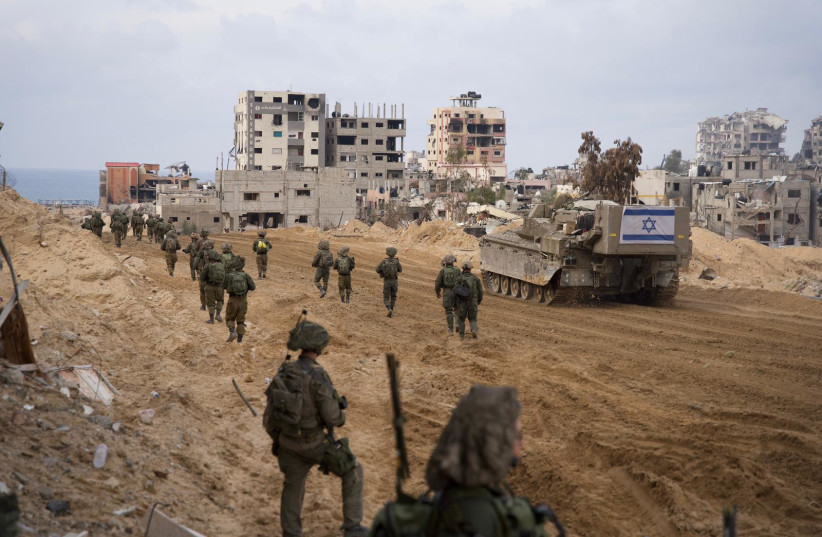
Yet, after October 7, Israeli political officials and some defense officials have talked insistently about a decisive and complete victory over Hamas in which the organization is destroyed.
Haliva said, "The high-quality intelligence provided by IDF intelligence saves many soldiers' lives every day, as they risk their lives on the front."
He stated that the intelligence also helps "strike a major blow to our enemies, from Gaza to Iran, and on all of the fronts in the face of complex challenges."
Next, he said that IDF intelligence "collection, analysis, and operations have a decisive impact on achieving the goals of the war: returning all of the hostages to their homes, and restoring Israeli deterrence throughout the region."
Huliya continued, "This is not an easy war. It will take time. But we will achieve our mission goals."
Go to the full article >>Hezbollah warned Arouri that 'Israel was following him' days before killing
According to the report, it is not yet clear from the investigation whether the assassination was carried out by a fighter jet or a UAV.
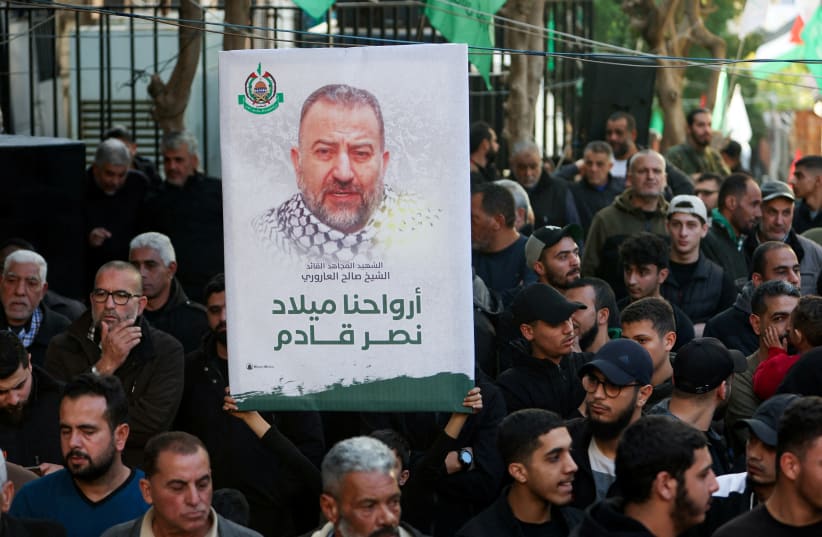
Hezbollah warned Hamas leader Saleh al-Arouri that "Israel was following him" days before his assassination, according to the Lebanese newspaper Al-Akhbar, which is affiliated with the terror organization.
The terror organization also told Arouri explicitly that "Israel is following his every move."
According to the report, it is not yet clear from the investigation whether the assassination was carried out by a fighter jet or a UAV. The Lebanese newspaper emphasized that it turned out that before the assassination, radars had detected the presence of fighter jets and unmanned aerial vehicles over Beirut and the Dahieh suburb, Hezbollah's stronghold in the city. They managed to penetrate two floors before reaching the room where the Hamas men were staying.
Al-Akhbar also reported that the missiles used in the attack were small but carried a warhead containing very deadly substances. These missiles were not intended to destroy the building but only to eliminate the senior Hamas officials staying there. Lebanese reports said the offices where the attack was carried out were evacuated after October 7, and the day the assassination took place was the first time they were used. The meeting was attended by Al-Aaruri, who had returned to Beirut a few days earlier after traveling between Qatar and Turkey.
Last night, the Lebanese media network reported that in the attack in which al-Arouri and six other Hamas operatives were killed, five others were wounded whose identity has not yet been confirmed for publication.
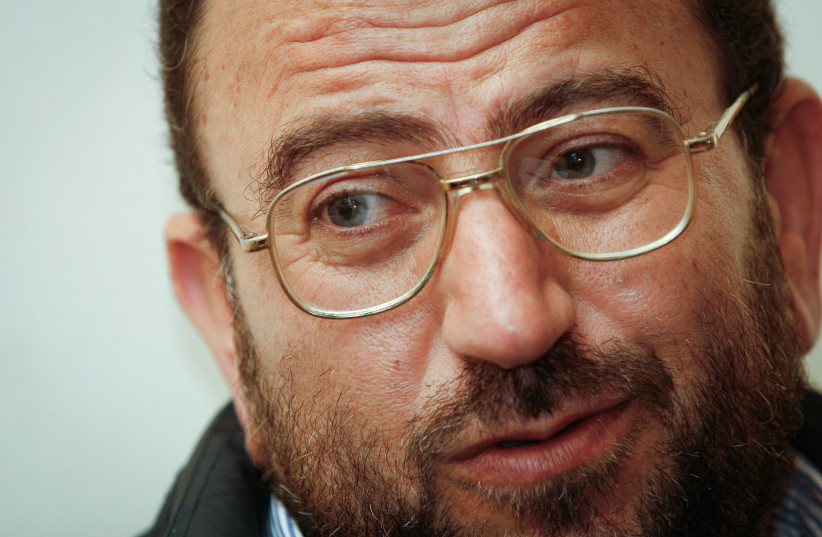
After the assassination, Lebanese sources claimed that through the assassination, "Israel sought to achieve more than one message." First, the sources claimed that Israel wanted to show that it was able to penetrate the central area of Hezbollah in Beirut. According to them, Israel also wanted to exert the strongest pressure in order to speed up negotiations, while in the background, the report claimed that "Israel is frustrated by the failed military operation against Hamas in Gaza, which did not achieve any of the achievements it was looking for."
Netanyahu threatened Arouri - Lebanese media
In Lebanon, they also commented at length on the words of Prime Minister Benjamin Netanyahu, who threatened Arouri at the cabinet meeting last August: "He knows very well why he and his friends are in hiding." According to Netanyahu, "Hamas and other branches of Iran understand very well that we will fight with all means against their attempts to create terrorism against us - in the West Bank, in Gaza, and anywhere else. Whoever tries to harm us, whoever finances, organizes, or sends terror against Israel, will pay the full price."
Lebanese Prime Minister Najib Mikati condemned the assassination and called it a "new Israeli crime." He also said that the purpose of the explosion was "to drag Lebanon into a new phase of conflict in a sophisticated manner." The Lebanese Foreign Minister also said that the country's government and people "don't want a war and are afraid to be dragged into a regional war."
Hezbollah explicitly threatened: "The crime of assassinating al-Arouri will not go unpunished." They also added that "the assassination of Saleh al-Arouri is a dangerous development during the war between the enemy and the axis of resistance." A Hezbollah member of parliament even said: "We will respond."
The terrorist organization also said in reference to the fighting in Gaza that "the enemy, who after 90 days failed to subdue Gaza, is pursuing a policy of elimination and physical elimination of everyone who worked, planned, carried out or supported the Al-Aqsa flood operation." As for the Lebanese people, they said that "the assassination of al-Arouri in the heart of the southern suburb of Beirut is a dangerous attack on Lebanon, its residents, its security, sovereignty and resistance. The crime of assassinating Sheikh Saleh al-Aaruri and his friends will never go unpunished."
Go to the full article >>Saudi Arabia rejects Israeli 'extremist remarks' on displacing Gazans

Saudi Arabia rejects "extremist remarks" by two Israeli ministers who called for the displacement of Gaza's population, the reoccupation of the strip, and the construction of settlements, the foreign ministry said in a statement on Thursday.
Go to the full article >>Unconfirmed reports of shooting in Kerman a day after blasts - Iran state media

Iran state media said on Thursday there were reports of shooting in the southeastern city of Kerman, a day after twin blasts killed nearly 100 people at a memorial ceremony for a top Iranian commander who was killed by a US drone attack in 2020 in Iraq.
Go to the full article >>UN Security Council members call for Houthis to stop attacks on shipping
The United States believes the situation has reached an "inflection point," Chris Lu, a US representative to the United Nations, told the council.
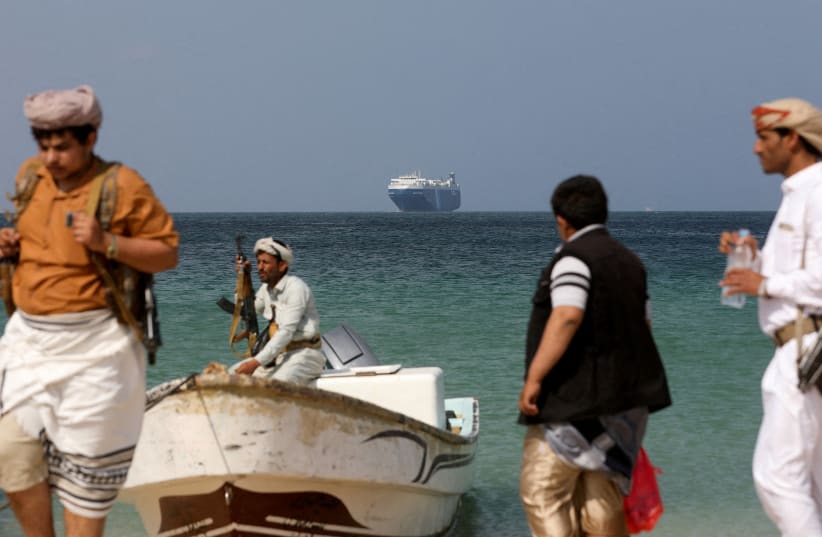
Members of the UN Security Council on Wednesday called on Yemen's Houthis to halt their attacks on shipping in the Red Sea and the Gulf of Aden, saying they are illegal and threaten regional stability, freedom of navigation, and global food supplies.
Addressing the council's first formal meeting of 2024, members also demanded that the Houthis release the Galaxy Leader, a Japanese-operated cargo ship linked to an Israeli company, and its crew, which the group seized on Nov. 19.
Some members urged the council to take action to halt the Houthi missile and drone attacks. But the body took no formal steps in the open session before going into closed consultations.
The United States believes the situation has reached an "inflection point," Chris Lu, a US representative to the United Nations, told the council.
"These attacks pose grave implications for maritime security, international shipping, and commerce, and they undermine the fragile humanitarian situation in Yemen," threatening aid deliveries to the war-torn country, Lu said.
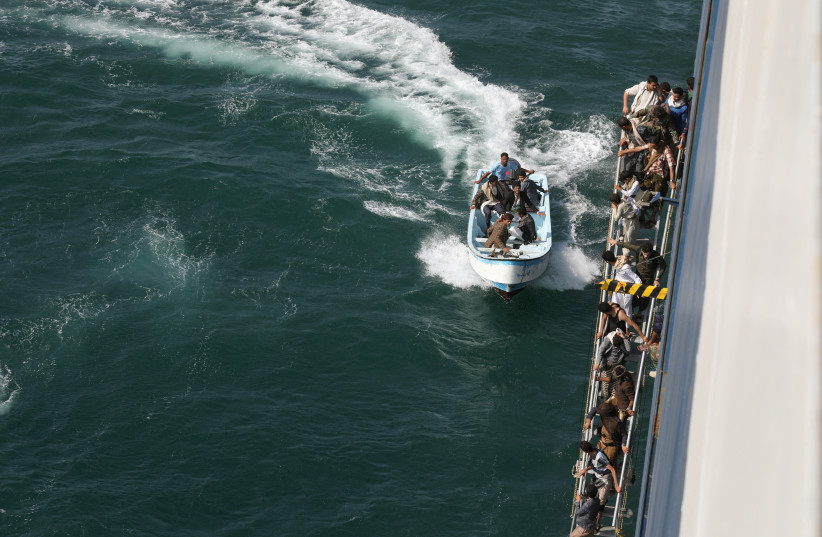
Houthis blame Israel for Red Sea attacks
The Iran-aligned Houthis, who control much of Yemen, have launched drones and missiles at more than 20 ships since Nov. 19, saying that in solidarity with Palestinians in Gaza, they were targeting vessels with Israeli links or were sailing to Israel.
But many vessels have had no Israeli connection and were not bound for Israeli ports, and major shipping lines have suspended their operations through the Red Sea.
The United States and other countries last month formed a naval task force, Operation Prosperity Guardian, to protect civilian vessels. US warships have shot down Houthi-fired weapons, and on Sunday sank Houthi speed boats.
Hours before the Security Council met, the United States and 12 other countries warned in a joint statement that the Houthis "will bear the responsibility of the consequences" should the attacks persist.
During the session, the US, British and Israeli representatives accused Iran of supporting the Houthi strikes, a charge Tehran has denied.
"The Houthis would struggle to effectively track and strike commercial vessels" without Iran's backing, said Lu.
Japanese Ambassador Kazuyuki Yamazaki was among those calling for the council to act to halt the attacks, although he did not specify what steps it should take.
"Japan believes the Security Council should take appropriate action to deter additional threats by the Houthis and maintain international peace and security," he said.
Russian UN Ambassador Vassily Nebenzia urged Houthi leaders to ease any actions posing threats to commercial vessels and their crews.
But, he said, the root of the issue was that it was an extension of the conflict between Israel and Hamas in Gaza, and he criticized Washington for blocking resolutions calling for a ceasefire.
China called the Red Sea an important shipping lane for the international goods and energy trade on Thursday and said it is of common interest to safeguard its peace and stability.
"China opposes attacks against civilian vessels. I believe all sides need to play a constructive and responsible role in safeguarding the security of shipping lanes in the Red Sea," Chinese foreign ministry spokesperson Wang Wenbin said during a regular news briefing.
Go to the full article >>Israel-Hamas War: What you need to know
- Hamas launched a massive attack on October 7, with thousands of terrorists infiltrating from the Gaza border and taking some 240 hostages into Gaza
- Over 1,200 Israelis and foreign nationals were murdered, including over 350 in the Re'im music festival and hundreds of Israeli civilians across Gaza border communities